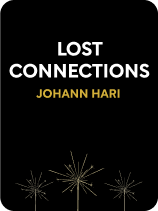

This article is an excerpt from the Shortform book guide to "Lost Connections" by Johann Hari. Shortform has the world's best summaries and analyses of books you should be reading.
Like this article? Sign up for a free trial here .
What are the benefits of social prescribing? Why is Big Pharma against social prescribing?
The major benefits of social prescribing are holistic treatment, community support, and opportunities to reconnect with nature. Social prescribing ensures that the doctor will not only prescribe drugs to treat biological issues but also address environmental factors. Big Pharma doesn’t like this because it treats the underlying cause of depression and threatens their profits.
Read on to more about the benefits of social prescribing.
Exploring the Benefits of Social Prescribing
In addition to building genuine relationships and practicing sympathetic joy, social prescribing can be a powerful way to reconnect with other people. Social prescribing is a practice in the medical field in which doctors can prescribe a range of structured social connections as a treatment for depression in addition to psychiatric drugs. To make this possible, doctors and medical facilities join forces with social workers, volunteer programs, and behavioral health programs that provide opportunities for people to form social connections in a supported, low-pressure environment.
One of the key benefits of social prescribing is that it has the potential to revolutionize mental healthcare by integrating social treatments for depression directly into patients’ medical treatment plans. To illustrate this, imagine you visit your doctor because you’ve been struggling with depression. Traditionally, she would only be able to prescribe medication and possibly recommend seeing a therapist. In terms of the biopsychosocial model, she’d only have the power to directly address part of the problem—the biological aspect. The rest, you’re left to tackle on your own.
In contrast,the highlight of the benefits of social prescribing is that it would give doctors back the power to fully care for their patients’ health by prescribing treatments that work on the biological, psychological, and social levels. If your doctor practices social prescribing, you’d leave the appointment with prescriptions for two antidepressants: one in the form of a pill, and one in the form of, for example, an invitation to join a volunteer project focused on turning an empty lot into a community garden.
Anecdotal data suggests that another of the benefits of social prescribing is that it is a powerful remedy for depression, but there is little formal research that specifically analyzes these programs—most likely because research requires funding, and pharmaceutical companies are the largest source of funding for research on mental illness. These companies have no interest in funding research on social prescribing because it is a major threat to the medical model that they rely on to make a profit.
Social prescribing threatens drug company profits because it addresses all the causes of depression. If you treat the underlying causes of mental illness, the need for drugs to act as a bandaid eventually goes away, and the number of people taking psychiatric medication as a long-term solution would drop dramatically. But if you only treat the biological component of depression, most people won’t get better, so they’ll keep buying newer and more powerful versions of the drugs.
Case Study: The Bromley-by-Bow Center
To see the benefits of social prescribing in action, Hari visited the Bromley-by-Bow Center in East London. The doctors at Bromley-by-Bow fully embrace social prescribing. They don’t claim to be “experts” in treating depression because they understand that the causes of depression are deeply personal, and that the biological aspect that they were trained to treat is only one piece of the puzzle. These doctors take the time to really get to know their patients—to ask “What matters to you?” instead of “What’s the matter with you?” That relationship informs every aspect of their treatment plan.
The doctors at Bromley-by-Bow can and do prescribe pharmaceutical antidepressants, but they think of them as only a first step—if depression is a bullet wound, then antidepressants are just the bandage that stops the bleeding. Once the patient’s immediate pain is addressed, doctors can treat the underlying issues contributing to their depression by prescribing one of over one hundred different structured social programs. These programs are deliberately designed to help depressed people connect to others, primarily through group volunteering.
You may wonder: Why volunteering, rather than, say, a support group, or maybe a sports team? There are two reasons for this. First, while support groups have their place, they require people to talk about the traumatic experiences that are making them miserable, which can feel impossible for people in the middle of a deep depression. The volunteer programs at Bromley-by-Bow avoid that hurdle while still providing the type of structured support that a support group would provide.
Second, volunteering with a group provides more than just social reconnection. Doing something to help others also provides a reconnection with meaningful work. Furthermore, caring for others can increase a person’s sense of status and respect, and some forms of volunteering (like urban gardening) can provide reconnection with the natural world.

———End of Preview———
Like what you just read? Read the rest of the world's best book summary and analysis of Johann Hari's "Lost Connections" at Shortform .
Here's what you'll find in our full Lost Connections summary :
- The psychological and social factors that contribute to mental illness
- The history of antidepressants and the science behind them
- Why Amish people hardly ever get depressed






